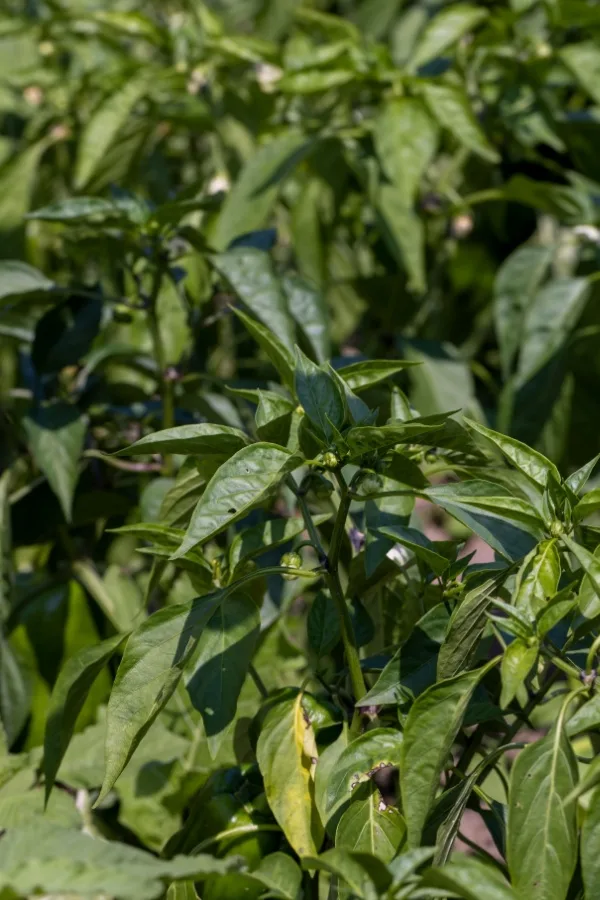Top-Rated Fertilizers for Peppers: Boost Your Harvest High Quality
Wiki Article
Organic Vs. Synthetic Fertilizers: Which Is Best for Nurturing Healthy And Balanced Pepper Plants?
In the realm of supporting healthy pepper plants, the selection between synthetic and organic fertilizers stands as a critical decision with far-reaching implications. While both choices aim to offer necessary nutrients to sustain plant development, the nuances of their influence on the dirt, plant health and wellness, and the setting stimulate a discussion that echoes throughout the gardening area. Comprehending the distinct benefits and possible risks of each fertilizer type is important for pepper cultivators seeking to optimize their yields while preserving a sustainable and eco-conscious approach.Benefits of Organic Plant Foods
Organic plant foods supply an environmentally-friendly and sustainable technique to beneficial pepper plants, supplying essential nutrients without using artificial chemicals. These all-natural plant foods are obtained from natural sources such as compost, manure, bone dish, and seaweed, advertising soil health and wellness and biodiversity. Unlike artificial plant foods, organic options launch nutrients gradually, guaranteeing a balanced and steady supply for pepper plants to flourish.One considerable advantage of natural plant foods is their ability to improve dirt structure and water retention. By improving soil wellness, natural plant foods promote beneficial microbial task, which helps in nutrient uptake by pepper plants. Furthermore, natural plant foods reduce the danger of chemical run-off, protecting water sources from contamination and safeguarding the environment.
Moreover, natural plant foods add to long-lasting soil fertility by promoting the development of beneficial soil organisms. These microorganisms aid break down natural issue, releasing nutrients in a type that is conveniently available to pepper plants. best fertilizers for peppers. By promoting a healthy and balanced soil ecological community, organic plant foods support lasting pepper growing methods that benefit both plants and the atmosphere
Downsides of Synthetic Fertilizers
Artificial plant foods, in comparison to their natural equivalents, position numerous downsides when used to nourish pepper plants, influencing both plant health and wellness and environmental sustainability. One significant downside of synthetic fertilizers is their propensity to seep nutrients from the dirt swiftly.Moreover, the overuse of artificial plant foods can add to water pollution. Excess plant foods not taken in by plants can wash away into water bodies, leading to eutrophication, where algae flowers deplete oxygen levels in the water, damaging marine life. In addition, artificial plant foods are usually derived from non-renewable sources, such as fossil fuels, adding to carbon discharges and environmental degradation during their manufacturing.
Nutrient Absorption Contrast
Reliable nutrient absorption plays a crucial function in the general wellness and development of pepper plants. When contrasting organic and artificial plant foods in terms of nutrient absorption, natural plant foods have the advantage of giving an extra balanced and slow-release resource of nutrients (best fertilizers for peppers). Organic fertilizers include a selection of macro and micronutrients that are not only helpful for the plants yet also advertise healthy and balanced soil microbial task, which assists in nutrient uptake. On the various other hand, synthetic fertilizers commonly supply a quick launch of nutrients, which can lead to leaching and drainage, causing reduced nutrient absorption prices by the plants.In addition, natural fertilizers enhance soil structure and water retention ability, allowing pepper plants to access nutrients extra successfully. This improved soil high quality helps with origin growth, making it possible for far better nutrient absorption. Artificial fertilizers, although initially improving plant growth due to their high nutrient focus, might hinder long-term nutrient absorption by degrading soil health with time.
Ecological Effect Factors To Consider

On the other hand, synthetic learn the facts here now plant foods, although usually even more focused and right away offered to plants, can have harmful results on the atmosphere if not used effectively (best fertilizers for peppers). Their production requires high energy inputs, causing greenhouse gas exhausts and adding to environment adjustment. Additionally, the drainage of excess synthetic plant foods can contaminate water sources, leading to eutrophication and damaging water environments.
Best Plant Food Practices for Peppers
When fertilizing pepper plants, maximizing nutrient uptake and decreasing environmental influence are essential factors to consider. To accomplish this, it is necessary to follow ideal fertilizer techniques customized to the particular requirements of pepper plants. One crucial method is to carry out a soil test prior to applying any kind of plant foods. This examination can determine the pH degree of the dirt and identify any nutrient deficiencies, leading you in picking the most appropriate fertilizer formula.One more important practice is to feed pepper plants at the ideal time. Generally, peppers gain from receiving visit fertilizer at planting and after that once again when they start to flower. Over-fertilizing can bring about vitamins and mineral discrepancies and hurt the plants, so it is crucial to comply with suggested application rates.
Additionally, selecting a balanced fertilizer with an NPK proportion that suits pepper plants' needs is fundamental. Organic fertilizers, such as compost or manure, can be outstanding selections as they launch nutrients gradually and improve dirt framework in time. Nevertheless, synthetic plant foods can provide a fast nutrient boost when required. Inevitably, integrating organic and artificial plant foods carefully can help nurture healthy pepper plants while minimizing ecological influence.
Verdict

Organic fertilizers supply an environmentally-friendly and sustainable method to nourishing pepper plants, supplying essential nutrients without the use of artificial chemicals. Unlike artificial fertilizers, natural options launch nutrients gradually, making certain a balanced and constant supply for pepper plants to thrive.
Synthetic plant foods, in contrast to their natural equivalents, posture different negative aspects when used to nurture pepper plants, impacting both plant health and wellness and environmental sustainability. When contrasting organic and artificial fertilizers in terms of nutrient absorption, organic fertilizers have the advantage of supplying an extra balanced and slow-release source of nutrients.Additionally, natural fertilizers boost soil framework and water retention ability, allowing pepper plants to accessibility nutrients much more effectively.
Report this wiki page